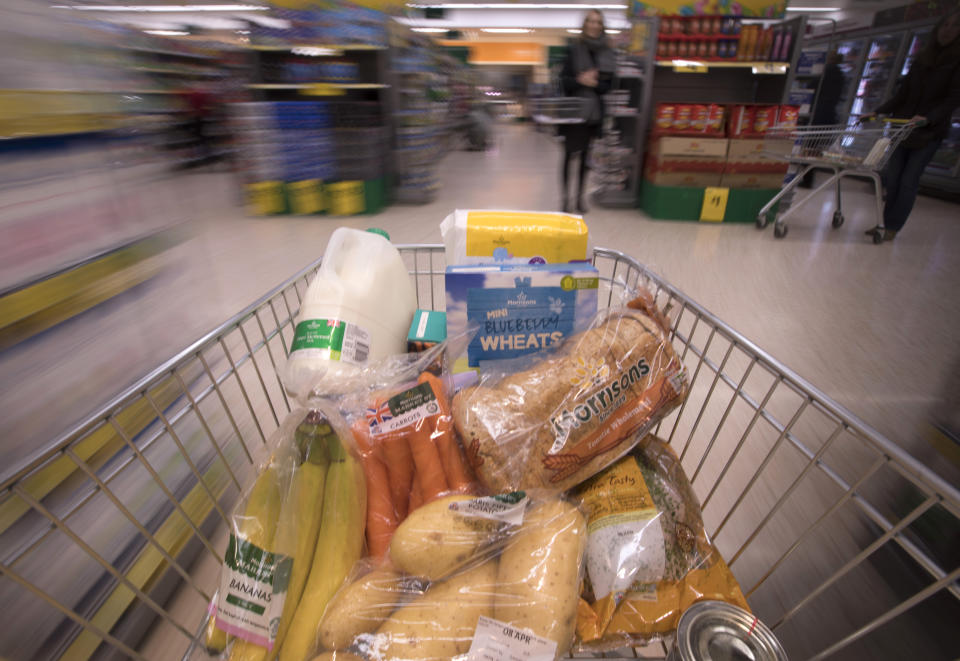A third of young people are cutting back on food to pay bills

A new study has found that around 20% of Brits have no disposable income left after paying for bills and essential outgoings each month.
The study, conducted by YouGov for home management site Hoppy, suggests that Brits are finding it harder to make their salaries stretch to the end of the month and cover essential outgoings, let alone save for a rainy day.
What’s more, two thirds (61%) of people scrimp on essential areas of living, including daily travel (29%), medication and health supplements (21%), and personal fitness goals (18%) in order to keep up with monthly bill payments each month.
READ MORE: Brexit making Brits stay home, spend less - Yahoo Finance
In particular, those in the 18–25 age group were highlighted as most likely to “scrimp to save”, with 77% of the age group limiting spending on necessities to be able to survive until the end of the month. A third of this demographic admitted to cutting spending on food to afford monthly bills.
The research highlighted that spending on essential high-cost outgoings inhibits 13% of the nation from saving any of their salary at all.
For example, the findings revealed that two-thirds of Brits spend as much as £240 a month on our utility bills collectively. Despite this, 36% of women and 26% of men admitted they wouldn’t switch on a utilities supplier to save money.
READ MORE: Five easy ways to cut down your day-to-day spending
It is also clear that the crunch is limiting aspects of Brits’ social lives, with consumers cutting down on new clothes (41%), socialising with friends and family (36%) and holidays (32%).
The research also found that only 14% of the population are educated about personal finance at school or university, “illustrating a need for further awareness around financial well-being”, Richard Longmore, Managing Partner of Hoppy, said.
He added: “In order to encourage financial well-being it is important we are educated on the best ways to save money. Consumers should start by assessing quick and simple changes that can be made to their lifestyle.
READ MORE: Five ways to cut down on food waste – and save money
“For example, 53% spend more than £30 a month on electricity bills and a further 25% spend £30 or more each month on broadband services. By re-assessing these monthly contracts, among others, consumers may be able to save a large amount of money just by switching their utilities provider to a cheaper alternative.”

 Yahoo Finance
Yahoo Finance 